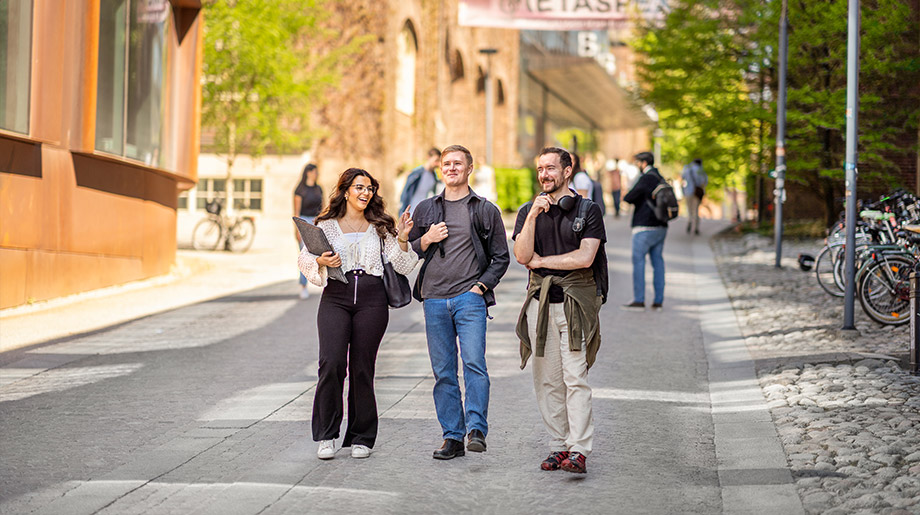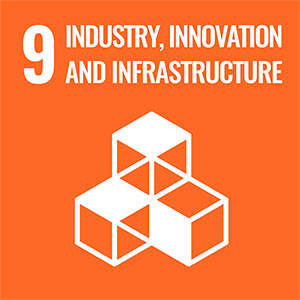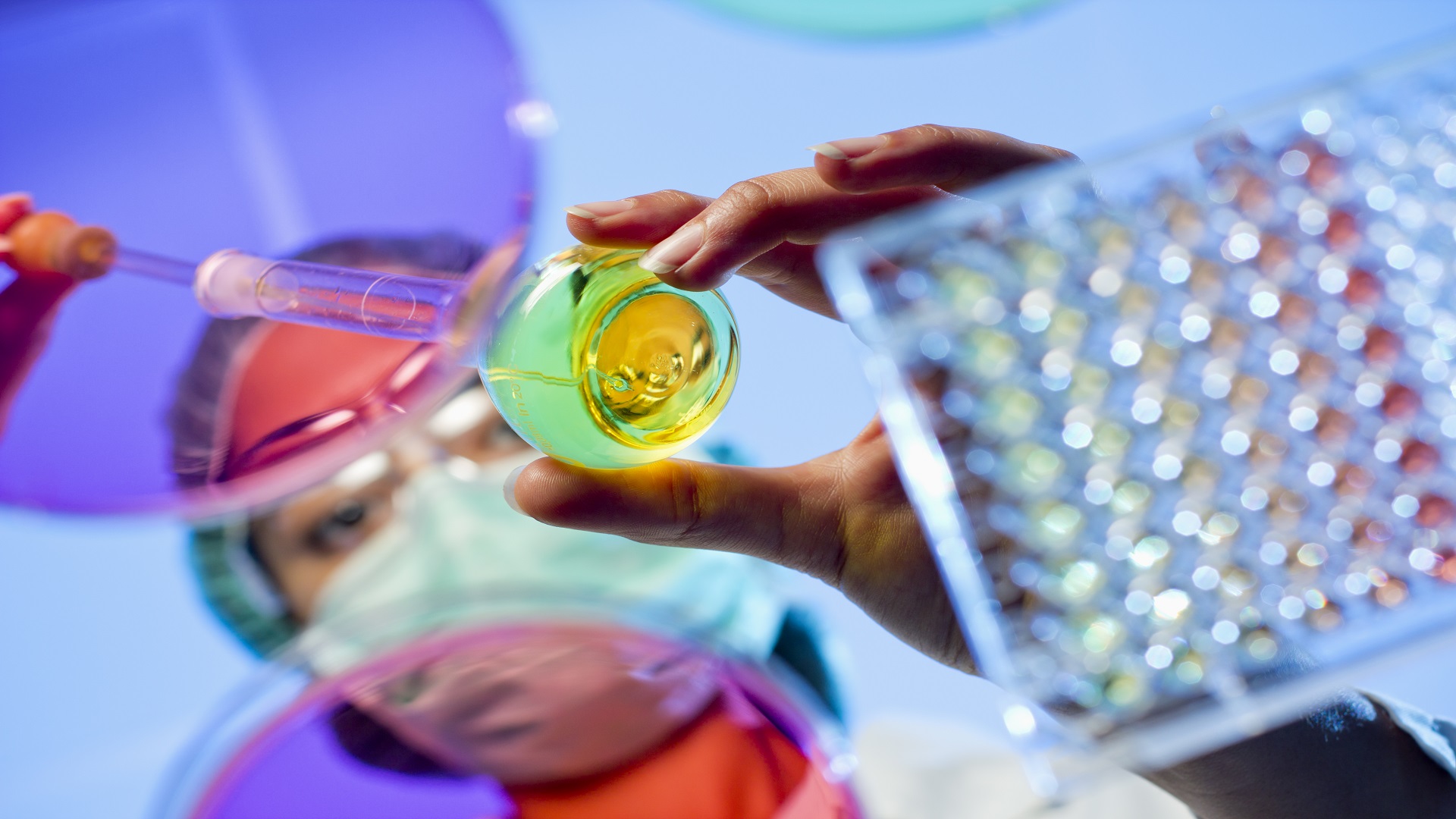MSc Medical Biotechnology
The master's programme in Medical Biotechnology provides a solid foundation for the development of sustainable biotechnological solutions and their use in health care. Students acquire knowledge about state-of-the-art techniques, experience in operating technological platforms and analysing big data in the context of human health. Graduates have the competence necessary to research and develop diagnostics, disease prevention tools and therapies.

Medical Biotechnology at KTH
This two-year master's programme comprises advanced courses that focus on tools used to analyse various biological samples for life science research, as well as for healthcare applications within diagnostics and drug development. You will gain in-depth knowledge about scientific methodologies used for comprehensive analyses of biological systems, and their applications for advanced health care or medical surveillance. The programme offers extensive biotechnology training to tackle global needs in the area of life sciences, preparing you for careers both in Sweden and internationally.
The programme offers two tracks designed to provide specialisation within a specific field of biotechnology: medical applications of biotechnology and omics. The student completes all courses within the chosen track and can tailor their education by adding courses from the other track, other courses in biotechnology or related subjects.
Courses comprise theoretical knowledge and practical application of theory, from experimental design to bioinformatic and statistical analysis of raw data and interpretation of the results. The curriculum provides a cross-platform approach that enables you to acquire a unique and individualised expertise that appeals to a wide span of employers. You will gain skills in problem-solving, project management, and professional communication. During the last semester of the programme, you will complete a master's degree project in a research setting at KTH, in industry or at a university or research institute anywhere in the world. The project allows you to acquire specialisation within a relevant topic.
The programme curriculum is designed, taught, and continuously updated by a team of internationally recognised researchers in different subject areas in collaboration with representatives from the private sector. The programme is given by the School of Engineering Sciences in Chemistry, Biotechnology and Health in Stockholm with access to facilities, infrastructure and instrument park available at Solna Campus (Science for Life Laboratory) and KTH Campus in Stockholm (AlbaNova University Center).
Courses in the programme
Courses in the programme Medical Biotechnology
Future and career
The combination of technology, biology and bioinformatics with an emphasis on applications in medicine, taught in the master's programme in Medical Biotechnology, provides an attractive profile for a professional career in the biotechnological and pharmaceutical industry or for further academic studies. These areas are expanding worldwide, which gives a graduate in Medical Biotechnology opportunities for a career in companies involved in the development of drugs, medical analyses and diagnostics, or further work with academic research, research policy, journalism, patent agencies, or as a consultant. Many of the graduates go on to doctoral studies.
Sustainable development
Graduates from KTH have the knowledge and the necessary tools to improve society in a sustainable way, as sustainable development is an integral part of all programmes. The Medical Biotechnology field creates and maintains sustainable solutions to societal challenges regarding human health. Sustainability is a key aspect that features in all areas of Biotechnology, from genomic, transcriptomic and proteomic characterisation of whole organisms, to the development of diagnostics and therapies. The three key sustainable development goals that are best aligned with the master's programme in Medical Biotechnology are:



The master's programme in Medical Biotechnology focuses on cutting-edge technologies used to explore biomolecules in humans at a holistic level, as well as understanding how biological processes function and are altered in disease. The acquired knowledge is applied to the design of innovative diagnostic tools, drugs and therapies capable of curing diseases and improving human health. Besides knowledge about how health and life quality can be improved, the programme also focuses on how technology can be used and further developed to characterize the interplay between humans and microorganisms, and how such knowledge can be used to benefit the development of a sustainable society and preserve life.
Faculty and research
The School of Engineering Sciences in Chemistry, Biotechnology and Health conducts research in both fundamental and applied sciences with an emphasis on the medical aspects of human biology and the development of technical applications for medical care. The research activities conducted are multidisciplinary in nature, bringing together technology, biology and bioinformatics. The teachers are internationally recognised researchers, and many are world-leading and conduct collaborative projects with leading international scientists as well as companies within the private biotechnology sector.
- Department of Gene Technology (Division of Genomics, Environmental Genomics, Evolutionary Biology and Forensics, Experimental Genomics, Expression Bioinformatics, and Statistical Biotechnology.)
- Department of Protein Science (Division of Affinity Proteomics, Cellular and Clinical Proteomics, Drug Discovery and Development, Nanobiotechnology, Protein Engineering, Protein Technology, and Systems Biology.)
- Department of Theoretical Chemistry and Biology





